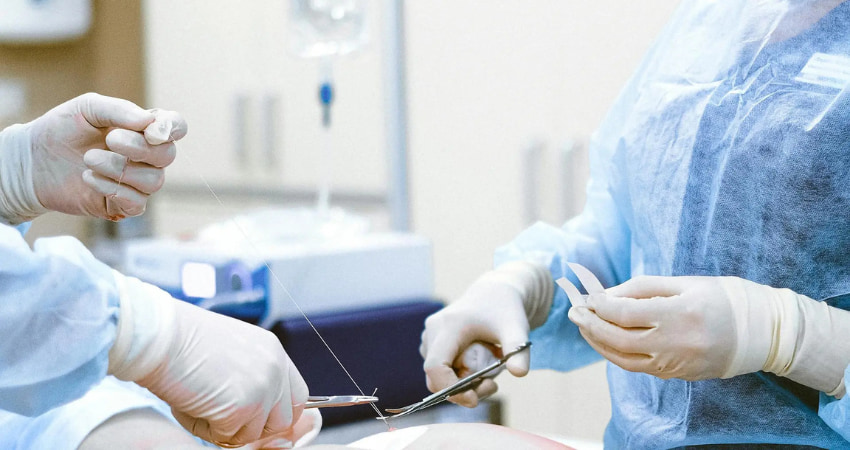The healthcare system of a country plays an enormous role in patients’ lives. On the one hand, it is imperative that patients receive the best level of healthcare, and on the other hand, it is vital that there is accountability when things go wrong. Below are a few points that should be considered when unfortunate situations arise where questions need to be raised and action needs to be taken.
Relevant Legislation
Federal Law on Medical Liability
The main legislation that covers medical errors is the Federal Law on Medical Liability (Law No. 4 of 2016) and most recently, Cabinet Resolution No. 40 of 2019. The 2019 Resolution provides some clarity to the 2016 law.
Definition of Medical Error
At Article 6 of the 2016 law, it is stated that a medical error is an error committed by a practitioner due to any of the following reasons:
- Ignorance in the technical matters that are supposed to be known by any practitioner of the same degree and specialisation.
- Non-compliance with the recognised professional and medical principles.
- Not exercising due diligence.
- Negligence and not paying attention.
Gross Medical Error
Article 5 of the 2019 Resolution has now delved further, providing a definition of ‘gross medical error’, to include amongst other things:
- An error causing the death of a foetus or patient.
- The eradication of an organ by mistake.
- The loss of an organ function.
- A doctor being under the influence of drugs and/or alcohol.
- Severe carelessness (for example, overdosing a patient with drugs/medication).
How to File a Complaint
If an individual wishes to launch a complaint or investigation into a potential medical error, there are three ways in which this can usually be done:
- Lodging a complaint with the relevant health body.
- Lodging a criminal complaint before the public prosecution/police.
- Filing a civil case at court.
Lodging a Complaint with the Health Body
The first port of call would usually be to lodge a complaint with the relevant health body (in Dubai this would be Dubai Health Authority [DHA]) [Art. 19 Law No. 4 of 2016]). It is important to note there is a three year limitation period in which the DHA can accept reports/ complaints of incidents therefore it is better to take action as swiftly as possible in order that the version of events of all those involved are recorded as accurately as possible and so that swift action can be taken.
Submitting the Complaint
The complaint can be submitted against a healthcare practitioner or against a healthcare facility by completing the Medical Complaints Procedure online form which is available on the DHA website: http://mc.dha.gov.ae. The form requires the complainant to be as detailed as possible about the practitioner/ healthcare facility that is being complained about and it is important that all supporting documentation is uploaded. In addition to this, the expectations should be clear about what the complainant would be hoping to achieve. For example: an explanation or further investigation etc.
The Clinical Governance Office will then contact all those concerned who can provide information about the complaint. It may be necessary to review healthcare records as part of this process. The complainant would then be informed if an investigation is required to resolve the case.
Investigation Process
Referral to Medical Liability Committee
If an investigation is required, the health body would refer the complaint to the relevant Medical Liability Committee (which would be set up by each health body [Art. 9 of the 2019 Resolution]) who would investigate the facts of the complaint, and within 30 days of the referral, would be under an obligation to compile a report determining whether a medical error has occurred. If the Medical Liability Committee decides to investigate a practitioner, then the practitioner’s license will usually be temporarily suspended until the report is submitted. The law states that the suspension cannot be for more than 30 days however once the 30-day period elapses, the suspension can be renewed for the same period.
Appeal Process
The complainant and the practitioner/ healthcare facility are given 30 days in which they can appeal the findings of the report. The appeal to the report would be made to the health body. Once the appeal is made, the Medical Liability Committee would then refer the report and all the documents associated with the complaint to the Medical Liability Supreme Committee. The Supreme Committee would then examine the case as well as the report of the Liability Committee. They will then either confirm, refuse, or amend the report. The report that is issued by the Supreme Committee will usually be deemed final.
Next Steps After Findings
Once the complainant has received the findings of the report which contains a finding of medical error, either a civil case can be brought in the Dubai Courts or a complaint can be lodged with the public prosecution or police. If convicted of a gross medical error, the practitioner and/or healthcare facility can face a prison sentence and/or financial penalty. The complainant can also submit a request for the health body to take disciplinary action against the practitioner/healthcare facility.
Potential Disciplinary Actions
Disciplinary action can include any one of the following:
- Reprimanding the practitioner/healthcare facility.
- Imposing further training for the practitioner and supervision by another licensed healthcare professional.
- Suspending the practitioner and/or healthcare facility’s license (temporarily or permanently depending on the nature of the medical error/s).
- Fining the healthcare facility.
This article does not constitute legal advice and should not be relied upon as such. For specific advice, please consult with our Dispute Resolution Lawyers in the UAE.

Partner, Head of Litigation, Dispute Resolution, and Real Property


